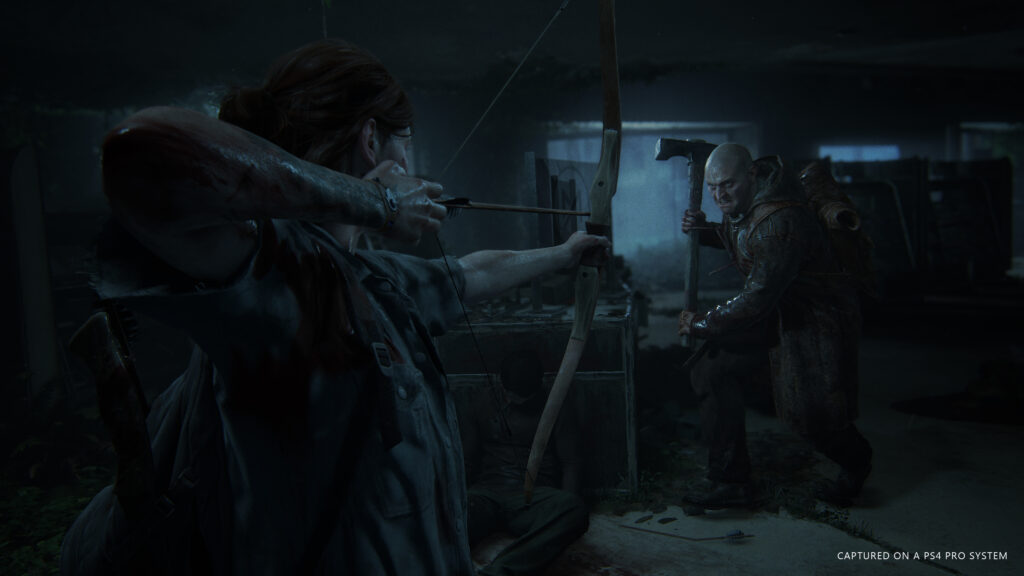
The Last of Us is one of my all-time favorite games. I’ve played it through several times and have loved it all over again each time. So…, when the The Last of Us Part II (Naughty Dog) was released in 2020, I was incredibly excited. But when I actually started up the game, I struggled to get into the flow of it. I loved the characters and the dialog and the gameplay was smooth and fun, but something didn’t click for me.
Over the next couple of years, I returned to the game several times, trying to get through it, then eventually fell off entirely — always with the intention of coming back to finish. Since the TV series is current coming out with its second season, it seemed the right time to return the game.
Now that I’m back into the game, I honestly have no idea why I had so much trouble connecting with it the first time around. Maybe my expectations were too high, or maybe I was thrown off by the tonal shift in switching to the sequel immediately after re-playing The Last of Us Part I. Or maybe I just wasn’t in the right headspace for something so dark.
Whatever the reason was, I’m really loving my experience now. Without going into spoilers, the story deepens Ellie’s relationship with Joel, showing the pair contending with Joe’s lies at the end of the previous game. It’s also great to see Ellie build relationships within her community, including some romance. But the calm is quickly shattered, spiraling Ellie into a rage fueled quest for revenge.

I’m fascinated by the way the game jumps between different times and switches the player character perspective (between Ellie and her antagonist Abbey) in order to provide nuance to the story and characters. In Wandering Games, Melissa Kagen writes about traversal in The Last of Us Part II, with Ellie and Abbey exploring the same areas at different times, providing new ways of seeing and exploring the space — and this is one of the elements that brought me back to the game. Playing it these levels in the way Kagen describes and delving into that dual perspective makes the experience so much deeper.
Abbey gets a lot of hate from gamers — understandable considering the emotional impact of her actions. But over the course of the game, I have come to lover her. She does a terrible thing, it’s true, but her reasons for doing so are valid (as much as anyone can justify any kind of revenge). And she has her own moral compass, with a strong sense of loyalty to her friends and a willingness to fight for those who cannot fight for themselves. In another game (one in which we never knew Joel or Ellie’s stories), Abbey would have been championed as the hero. But here, the player’s experience of her story is so much more complicated.
As I’m reaching the end of the game, I’m finding it much harder to progress — not hard in terms of difficulty (I have everything set to the easiest mode), but hard because I’m so emotionally conflicted. I love Ellie and I love Abbey, and I really want both of them to have happy (or at least peaceful) endings, but the game doesn’t seem geared to allow that — and I really, really, really don’t want to play through the pathways the game is forcing me to take. (I’ve actually been taking a break the last week or so, because I’m having difficulty facing the heartbreak that’s coming.)

If you’d also like to know about the books and movies that I enjoyed recently, you can check out my Culture Consumption for April.